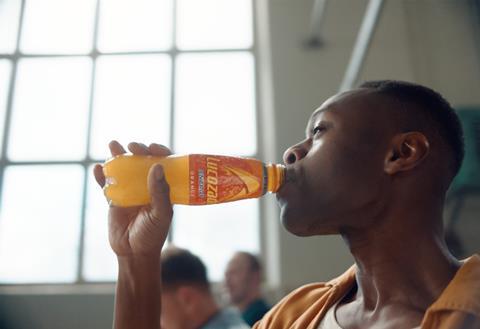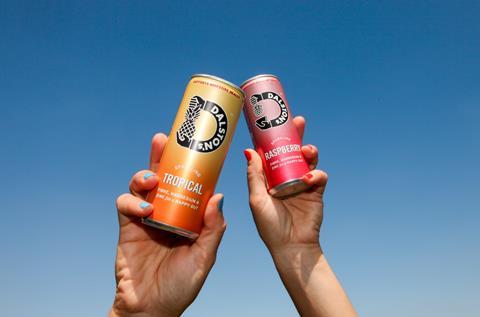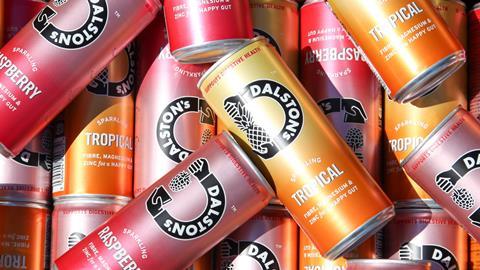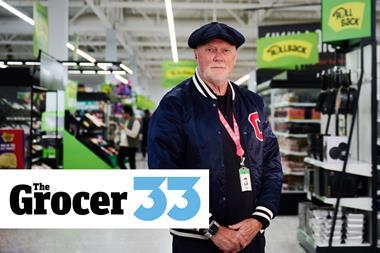The soft drinks sugar levy threshold has been lowered, leaving suppliers feeling victimised. What impact will the changes have?
The Soft Drinks Industry Levy (SDIL), or the sugar tax as it is better known, has become the poster child of the war on sugar – not least because it has been perceived to be so successful.
Introduced in 2018, it was widely credited with slashing sugar in soft drinks by 34.3% by 2020 against a 2015 baseline.
Now ministers say the time has come to dial things up, with a consultation to extend the tax to milk-based drinks and to substantially lower the threshold – from 5g of sugar per 100ml to 4g – bringing nearly 900 new products in scope.
So, what does the move mean for soft drinks companies, many of whom have already spent millions reformulating their products? And will it benefit consumer health?
Rewind to November 2017 and The Grocer was breaking the news that soft drinks giant Lucozade Ribena Suntory was unveiling what it called a “game-changing” reformulation for its biggest brands, Lucozade and Ribena. It was an overhaul which, like a host of other brands, would see products duck under the 4.5g/100ml level for sugar content.
This was the sweet spot for reformulation, because not only would it allow brands to come in under the 5g/100ml threshold for the SDIL due to come into force the following spring, it would also allow them to avoid being classified as HFSS under the government’s nutrient profiling model (NPM), the sugar threshold for which is 4.5g/100g.

Lucozade Energy Orange got the most dramatic makeover, with the new version containing 65% less sugar, down to 4.5g from 13g. And the impact on sales was equally dramatic: a year later Nielsen figures showed value sales for Lucozade Energy had fallen by more than £25m, while volume sales were down nearly 8% year on year.
So there’s palpable anger that Lucozade is back in the firing line. “We’ve spent years and millions of pounds reformulating our drinks to below 4.5g of sugar per 100ml,” says Alpesh Mistry, commercial director at Lucozade owner SBF GB&I. “This was part of a strategy to produce a portfolio that is non-HFSS, which we believe allows for a range of responsibly made drinks that balance functionality and taste.
“The impact this may cause to the industry is qualified with no evidence that this will create a meaningful improvement to public health,” Mistry adds.
Another leading drinks suppliers says: “This is going to cause huge disruption and there is no evidence outlined in the consultation that suggests this will be a meaningful improvement to public health. This issue is so much wider than soft drinks (now making up less than 7% of sugar intake) so we’ll be urging the government to think again.
“We know many consumers want greater choice in low and no sugar drinks and also look for options with sugar at different times too.
“It’s down to consumers to find the balance, not for the government to reduce the options available by penalising drinks that have been reformulated.”
But the government claims its move to toughen the threshold will lead to an additional 17% of sales volumes for soft drinks being captured, and cut calorie consumption in five to 10-year-olds by 0.9kcals a day.
Threshold decision
The government consultation says ministers pondered changing the threshold to 4.5g/100ml to match the NPM cut-off, which it concedes “attempts to balance the contribution made by ‘beneficial’ components/nutrients of food and drink alongside the negative contributions from nutrients where intakes are higher than recommended”. But it dismissed the idea because it realised it could capture hundreds more products if it went further.
The consultation notes copying NPM would only rope in 221 extra products, rather than 866 (see table above).
Belvoir Farm boss Pev Manners, whose range of cordials are caught in the net, says: “Companies like mine are now going to face huge reformulation costs.
“I’ve got a team that have been working hard to get under 4.5g, and now I’ve got to send them back to the drawing board.”
Read more:
-
Soft drinks bosses rage as sugar levy change set to hit 900 products
-
Has pop lost its cool? Trends in soft drinks 2025
-
Soft drinks sugar tax hike is a ‘seismic kick in the teeth’
-
Dairy industry slams sugar tax extension as ‘flawed’ as consultation kicks off
Manners says the fact that drinks manufacturers will have no option but to turn to further use of artificial sweeteners, themselves in the firing line of the health lobby, is another flaw in the government’s plans.
“Are they trying to drive people towards only buying drinks in plastic containers that are full of artificial sweeteners, in which case God help us,” he says.
“It’s absolutely nonsense. If you’re a natural brand that doesn’t want to use artificial sweeteners it’s because customers don’t like it.
“What do you do? You either use more fructose, or you can hope the consumer will accept a much lower sugar product.
“But it carries a huge risk that the consumer rejects the product.”
Manners also echoes a complaint aired by the BSDA that it represents muddled thinking for ministers to go after the soft drinks industry, which has spent so much money on removing sugar, when health campaign groups such as the Food Foundation and author of the 2021 National Food Strategy, Henry Dimbleby, have called instead for wider fiscal measures to target sectors of the industry that have done much less to reduce sugar levels.
“If you look at Dimbleby’s report he said sugar should be taxed at source, which would be a much fairer way of tackling this rather than continue to hammer the soft drinks sector,” says Manners.
“The timing of this when as a sector is facing spending millions on DRS and in cases like ours facing huge taxes in the shape of EPR is outrageous and just another kick in the proverbials from the government.”
Duncan O’Brien, founder of fruit-based drinks brand Dalston’s – whose products range from 2.4g to 3.6g in sugar content, below the new proposed threshold – argues reformulating while maintaining great taste is achievable, but only using high-quality ingredients, and at a cost which may not fit with price-driven traditional soft drink players.
O’Brien also believes new reformulation attempts will push consumers to the lower-cost option: artificial sweeteners.
“Soft drinks companies have seriously improved their finesse in moving away from high-sugar formulations,” he says.
“However, they often lean on ultra-processed high-intensity sweeteners.
“It’s likely that larger companies’ response to a harsher sugar tax will be to create yet more Frankenstein-like long-ingredients-list beverages that work on taste (for some), and on cost but are highly questionable when it comes to health.

“Almost certainly the reduction in sugar will lead to the greater use of high intensity sweeteners,” O’Brien claims, though he adds: “I think we are also seeing a slow but progressive decrease in consumers’ sweetness preferences. The high sugar beverages of yesteryear are surely on their way out apart from in some notable instances.”
Rose Cottingham, director of global innovation at Fever-Tree, argues the change to the threshold is a “blunt instrument” that risks undermining the levy’s original intent.
“It would accelerate a trend we’re already seeing across the soft drinks sector: the quiet but steady shift toward artificial sweeteners, not for health, but for cost and compliance,” she says. “A growing number of drinks on supermarket shelves today have been reformulated with sweeteners like aspartame, acesulfame-K and sucralose.
“Artificial sweeteners are cheap, chemically potent, and easy to integrate but that comes with consequences.
“Lowering the threshold further doesn’t just penalise products with already modest sugar content. It will also narrow the marketplace, reducing the availability of naturally formulated options. In doing so, it removes meaningful choice from consumers — something Fever-Tree is adamantly against.
“Consumers should be empowered with a range of options, not funnelled toward artificially sweetened products by financial incentives and regulatory pressure.”
However, Julian Atkins, MD at Global Brands, the owner of Franklin & Sons, says companies that have invested “huge sums” reformulating their products are the ones left with the worst taste in their mouth.
“All this effort and financial investment will have effectively gone to waste, and drinks producers will be forced to go through this entire reformulation process again, which of course comes with a whole host of other associated costs including packaging and label changes.”
Neither will the mood of soft drinks companies be boosted by word that the Conservative Party, which brought in the tax in the first place, now looks to be turning against it.
“The sugar tax is a policy we can look at and say, ‘We got it wrong’,” political commentator and strategist John Oxley writes on Conservative Home.
The Tories may have more time to ponder than the Treasury and the DHSC, whose consultation on the proposals runs only until 21 July. Few in the soft drinks industry are holding out much hope of a similar change of heart.




















No comments yet